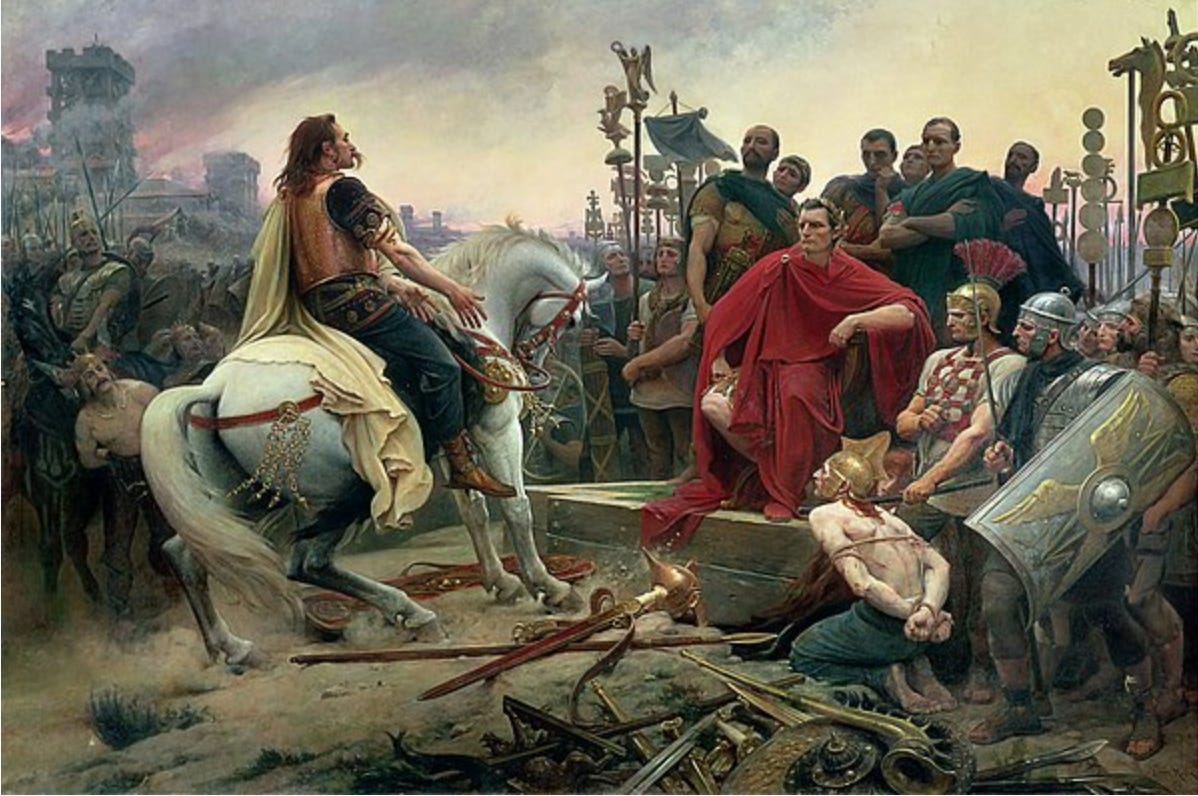"Coercive" States, & Judging Among þe Nations
Alice Evans’s sentence is “States were often coercive, so should not be celebrated as more ‘advanced civilisations’.”
And my response is: not quite:
High cultures really are worth something.
And the interaction between taxation by an élite and living standards of typical non-élite members of society is not straightforward—at least not in the days back before 1500? 1770? 1870? when humanity was under the harrow of Malthus.
Yes, states were (and are) more than often highly, highly coercive. But so, often, were not-states. A strong state can mobilize more power to coerce. But a strong state can also mobilize more power to protect non-élite individuals from roving bandits and the stationary bandits who are local notables. A state has an interest in an imperial peace, a sophisticated division of labor, and a social climate that boosts investment—all so that there is stuff it can tax—on a scale that local notables and roving bandits definitely do not.
Thus I think it is difficult to make the argument that it is in general worse to be under the hegemony of a state than to be under the hegemony of a local powerful lineage. Is one’s life more constrained by hegemony in Edinburgh, near Rosneath Castle, or around Castle Hill Henge?
Now it is true that there is a very strong, indeed irrefutable, argument that where mercantile (and later industrial) capitalism get tied to staple plantation production for the market and with slavery things get very, very bad indeed.
But there is also a powerful argument that it was better to be a free farmer in the Seine or the Thames valleys under the Dominate of the successors of Diocletian in the 300s than to be a thrall of some Saxon or a serf of some Norman adventurer-thug 250 or 600 years later.
Let me hasten to say that I am only picking at that one sentence by Alice Evans. Let me show you it in context:
Alice Evans: Why was Ancient Nubia less controlling than Ancient Egypt?: ‘There is a fantastic new book on the kingdoms of Ancient Africa, including Egypt, Nubia, Sudan, Ethiopia, Yoruba, Asante, Kongo, Buganda and Zulu. Great Kingdoms of Africa begins with a very important premise. States were often coercive, so should not be celebrated as more ‘advanced civilisations’. I think this is a really important mentality. While grandiose palaces are aesthetically impressive, surplus was usually extracted from labourers who lived in squalor. This is a useful corrective to narratives that dismiss or denigrate small-scale societies, as well as to those who defensively hype-up small kingdoms…
That is a very smart paragraph, with which I agree.
Let me start thinking, as I do, as a card-carrying Malthusian economist.

